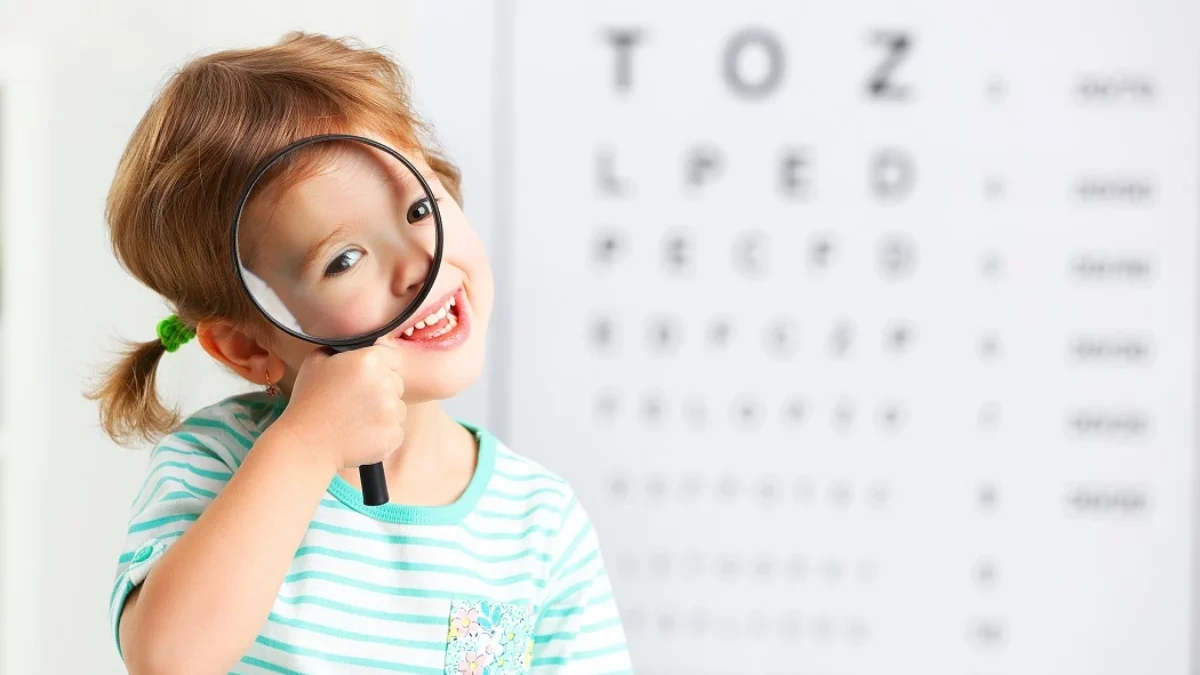Featured
Table of Contents
Eye health is an essential component of total health, and routine eye tests play a vital duty in keeping good vision throughout life. Each age group has certain demands and risks connected to eye health, making it vital to comply with tailored referrals for eye assessments. Below's an in-depth overview of exactly how often eye tests should be set up for different age.
After the initial examination, youngsters need to have a second eye assessment around age 3, when they can better take part in screening and analysis. If no vision issues are determined, the next examination is advised prior to beginning college, normally around age 5. Early detection of concerns can cause prompt intervention and support healthy and balanced aesthetic advancement.
Moms and dads need to look for indicators of vision issues, such as problem reading the blackboard, squinting, or experiencing headaches. It's important to set up an eye test quickly if any of these signs emerge. Youngsters who take part in sporting activities might profit from annual eye examinations to guarantee ideal aesthetic performance and safety and security throughout tasks.
![]()
Young grownups usually experience electronic eye pressure due to substantial display time, leading to signs like dryness and discomfort. Looking for an eye examination is crucial if you notice these signs. An eye care professional can use remedies, such as computer glasses or lifestyle changes, to ease pressure.
For people with wellness problems like diabetes or high blood pressure, more frequent tests may be necessary. Routine tracking is vital for very early discovery and monitoring of prospective problems that can impact vision.
Elders may also experience modifications in their visual assumption, such as problem seeing in low light or identifying shades. Routine eye tests enable for prompt treatment and aid maintain self-reliance and top quality of life.
Infants (0-2 Years)
Babies undergo considerable visual advancement in their very early years, making very early eye evaluations crucial. The American Academy of Pediatrics suggests that babies have their initial eye exam at concerning 6 months old. This first browse through aids recognize any type of possible vision problems, such as strabismus (gone across eyes) or hereditary cataracts, which can influence growth if not attended to early.After the initial examination, youngsters need to have a second eye assessment around age 3, when they can better take part in screening and analysis. If no vision issues are determined, the next examination is advised prior to beginning college, normally around age 5. Early detection of concerns can cause prompt intervention and support healthy and balanced aesthetic advancement.
Youngsters (3-18 Years)
For school-aged kids, routine eye examinations are vital for both academic success and basic well-being. Children should have their eyes examined every one to 2 years, depending on their specific requirements. Schools frequently conduct vision testings, but these do not replace comprehensive eye tests by an eye treatment expert.Moms and dads need to look for indicators of vision issues, such as problem reading the blackboard, squinting, or experiencing headaches. It's important to set up an eye test quickly if any of these signs emerge. Youngsters who take part in sporting activities might profit from annual eye examinations to guarantee ideal aesthetic performance and safety and security throughout tasks.
Young Person (19-39 Years)
During young their adult years, numerous people take pleasure in reasonably secure vision, but that doesn't imply eye care can be ignored. Young person should schedule comprehensive eye tests every two years. Those that put on contact lenses or have a family history of eye disease must think about yearly tests.
Young grownups usually experience electronic eye pressure due to substantial display time, leading to signs like dryness and discomfort. Looking for an eye examination is crucial if you notice these signs. An eye care professional can use remedies, such as computer glasses or lifestyle changes, to ease pressure.
Grownups (40-64 Years)
As individuals enter their 40s, adjustments in vision can come to be much more noticeable, specifically presbyopia, a condition that makes it challenging to concentrate on close items. Adults in this age group must arrange eye examinations every one to two years. This is likewise the age when several eye illness, such as glaucoma and diabetic retinopathy, can begin to develop.For people with wellness problems like diabetes or high blood pressure, more frequent tests may be necessary. Routine tracking is vital for very early discovery and monitoring of prospective problems that can impact vision.
Elders (65 Years and Older)
Senior citizens go to a raised danger for different eye diseases, including cataracts, age-related macular deterioration, and glaucoma. It's recommended that individuals matured 65 and older have an eye exam at least yearly. Early discovery of these conditions is crucial, as many can be treated successfully if caught early.Elders may also experience modifications in their visual assumption, such as problem seeing in low light or identifying shades. Routine eye tests enable for prompt treatment and aid maintain self-reliance and top quality of life.
Verdict.
Focusing on eye treatment and normal exams makes sure that individuals can take pleasure in clear vision and a better top quality of life, making eye health an important facet of long-lasting health. Routine appointments with an eye care specialist will certainly lead the way for much healthier eyes and a brighter future.Table of Contents
Latest Posts
Experience Coastal Sophistication at Deauville Inn
Published Apr 17, 25
1 min read
Selecting the Right Venue: What to Consider for Wedding Celebrations, Seminars, and Events
Published Mar 24, 25
1 min read
Selecting the Right Place: What to Take into consideration for Weddings, Meetings, and Events
Published Mar 21, 25
1 min read
More
Latest Posts
Experience Coastal Sophistication at Deauville Inn
Published Apr 17, 25
1 min read
Selecting the Right Venue: What to Consider for Wedding Celebrations, Seminars, and Events
Published Mar 24, 25
1 min read
Selecting the Right Place: What to Take into consideration for Weddings, Meetings, and Events
Published Mar 21, 25
1 min read